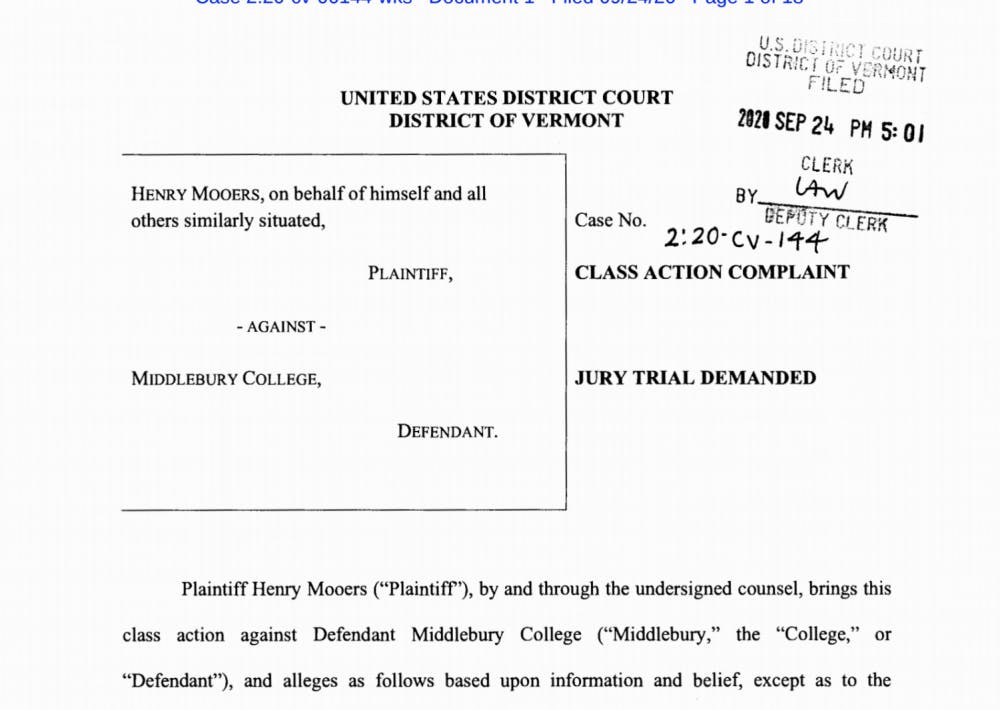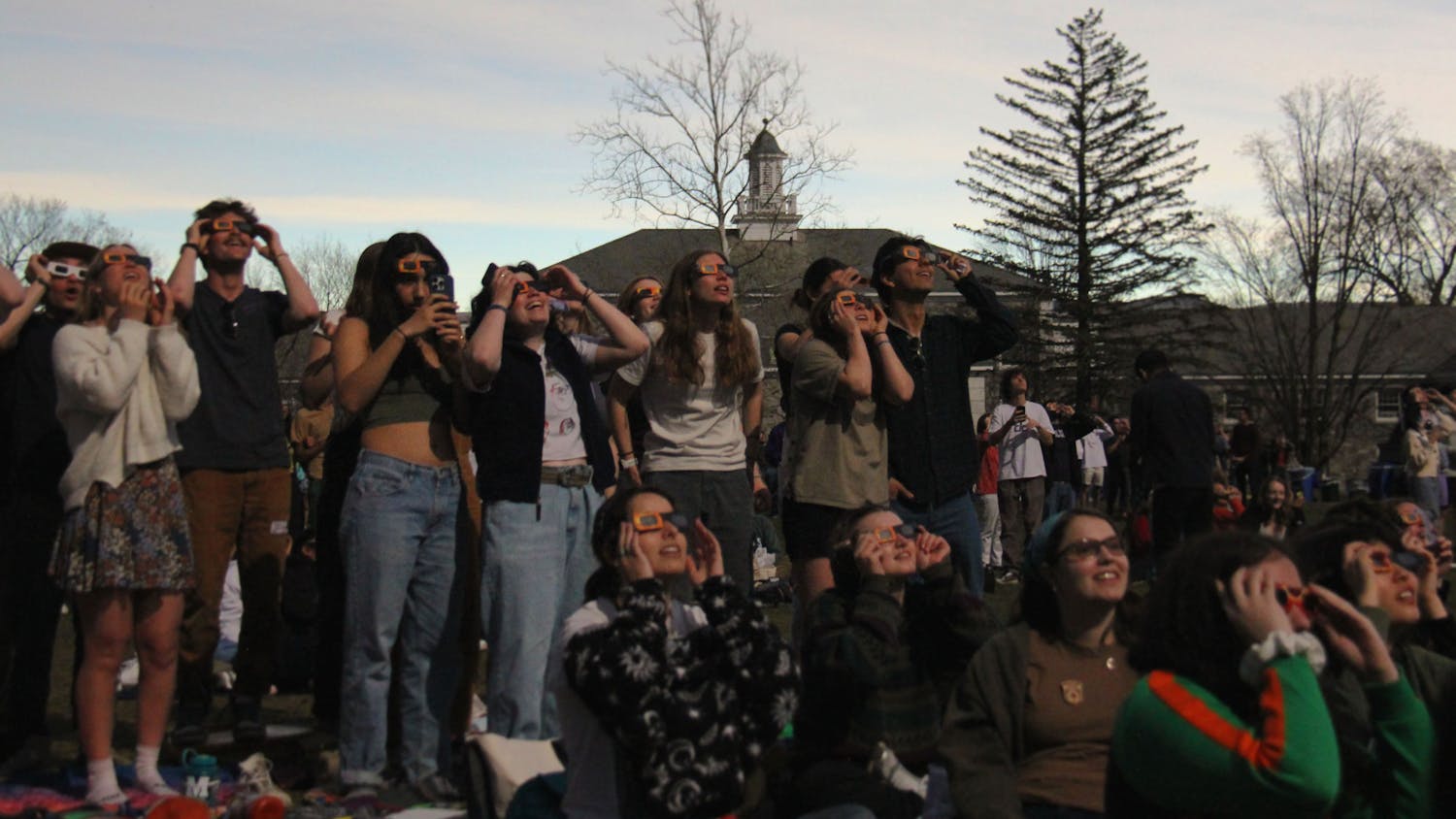A class-action lawsuit filed in Vermont's U.S. District Court late last week accuses Middlebury College of not adequately reimbursing students for tuition and fees paid for an in-person spring semester that became largely remote due to Covid-19.
Plaintiff Henry Mooers ’21, a senior from Norwell, Massachusetts, filed the suit on September 24. Although the college refunded students a prorated portion of fees for spring room and board, the plaintiff seeks an additional refund for the “failure to provide services” that are ordinarily covered by tuition and mandatory fees. Mooers declined to comment on the case at this time.
The college transitioned to remote learning on March 13 due to the health crisis posed by Covid-19. In the process, the administration also extended spring break, eliminating a week of classes from the ordinarily 13-week long academic session. A few of the facilities and services cited in the lawsuit that students were deprived of last semester include the library, sports facilities, in-person labs and health services.
As part of the intended class-action lawsuit, the plaintiff seeks a prorated return on tuition for himself and all other Middlebury students, proportionate to the time that the spring semester was remote. With a tuition of $28,940 per semester and nearly 2,800 undergraduate and graduate students, the maximum sum of this pay-out could amount to tens of millions of dollars. Tristan Larson, a Vermont attorney representing the plaintiff, did not provide comment on the case. Jeff Brown, the lead attorney, also did not reply to inquiries.
The college responded to the lawsuit in a statement that reiterated its commitment to providing “high-quality academic programs and services” to students throughout the pandemic. But the statement also mentions the balancing act of simultaneously “supporting the well-being of our students, faculty, and staff.” Last spring, the college continued to pay staff salaries despite the majority of students being remote.
The lawsuit cites an online petition as reason to believe that Mooers’s peers might support the class-action suit. The petition, penned by Spanish Master’s student Tamar Freeland, emphasizes the college’s financial options for repaying students, including its $1.15 billion endowment. The change.org petition has around 135 signatures but has gained only a few dozen more since it was originally posted in early May.
If a federal judge certifies the suit's class-action status, the case will be tried by jury. The case was originally assigned to Judge William K. Sessions III ’69 on Monday, but he recused himself from the case. Although not confirmed by his office, Judge Sessions attended Middlebury College, and may have recused himself based on a conflict of interest. The case has since been reassigned to Judge Christina Reiss.
There are currently no other known class-action lawsuits in U.S. District Courts against fellow NESCAC colleges or peer institutions, but they may be in the works. According to its website, one New York law firm is currently investigating complaints against Vassar, Hamilton, Skidmore and Colgate for not fulfilling expected in-person services during the spring semester.
[pdf-embedder url="https://middleburycampus.com/wp-content/uploads/2020/09/Class-Action-Lawsuit-Covid.pdf" title="Class-Action Lawsuit Covid"]
Class-action lawsuit against Middlebury seeks spring tuition refund

Comments



